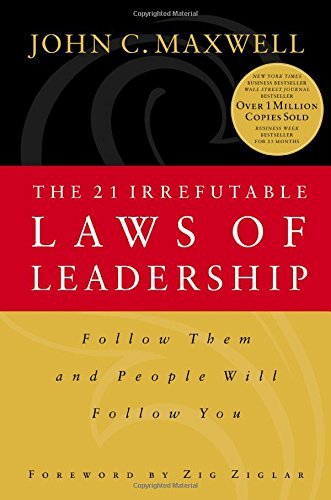
The 16 Undeniable Laws of Communication: Apply Them and Make the Most of Your Message
Book Description
Unlock the secrets that turn ordinary conversations into extraordinary connections! In "The 16 Undeniable Laws of Communication," John C. Maxwell dives deep into the art of impactful messaging, revealing the powerful principles that inspire and engage. Each law is a stepping stone to mastering influence, whether it’s leading with clarity or stirring passion in others. Tackle the complexities of relationships, navigate the nuances of dialogue, and discover how to ensure your message resonates. Ready to elevate every word you speak and become an unforgettable communicator? What would your life look like if every message you delivered left a lasting impression?
Quick Book Summary
"The 16 Undeniable Laws of Communication" by John C. Maxwell is a practical guide for anyone seeking to elevate their communication skills and influence others more effectively. Maxwell distills his expertise into sixteen principles that drive connection, clarity, and inspiration. The book covers techniques to make messages resonate, foster trust, and create meaningful dialogue. With real-world examples and actionable advice, Maxwell demonstrates how communicators—whether leaders, professionals, or everyday individuals—can master the craft of conveying ideas with impact. By embracing these laws, readers can turn ordinary conversations into extraordinary opportunities for influence, deepen relationships, and leave lasting impressions in every context, from boardrooms to personal interactions.
Summary of Key Ideas
Table of Contents
Building Trust and Authentic Connection
John C. Maxwell emphasizes that the foundation of effective communication lies in building trust and authentic relationships. He underscores the importance of credibility: people listen and respond positively when they believe the communicator is genuine and cares about their interests. Maxwell outlines practical strategies for establishing trust, such as consistency in words and actions, openness about intentions, and honesty—even when delivering difficult messages. Strong connection, he argues, unlocks the willingness of others to engage with and act upon a message.
Clarity and Simplicity in Messaging
Clarity is another cornerstone throughout the book. Maxwell asserts that complex messaging often leads to misunderstanding and disengagement, so communicators must strive for simplicity and focus. He outlines methods for refining messages, including knowing the audience, organizing thoughts logically, and using relatable stories or analogies. By stripping away jargon or ambiguity, communicators make their core message easily actionable and memorable, ensuring that people not only hear but understand and internalize what is shared.
Empathetic Listening and Engagement
Engagement is sustained through empathetic listening, according to Maxwell’s insights. Rather than dominating conversations or prioritizing one's agenda, effective communicators listen attentively to understand concerns and perspectives. He highlights active listening, asking clarifying questions, and being present as vital skills. When people feel heard and valued, they are more receptive and collaborative, turning communication from a one-way transfer of information into a dynamic, relational process.
Inspiring Action Through Influence
Maxwell devotes several laws to inspiring action and instilling influence. He stresses that memorable communicators move beyond imparting information to stirring emotion and motivating change. By sharing vision and passion, leveraging storytelling, and connecting messages to larger purposes, communicators can drive others to act. Maxwell also cautions that influence carries responsibility; leaders must use their platform ethically to create positive, lasting impact.
In essence, Maxwell's sixteen laws create a comprehensive framework for enhancing communication in any setting. Whether speaking to large audiences or holding one-on-one conversations, these timeless principles are adaptable and practical. Readers are encouraged to assess their own habits, apply the laws consistently, and seek feedback to refine their approach. The result is a significant elevation in both the efficacy and ethical quality of their message, helping them become unforgettable communicators.
Download This Summary
Get a free PDF of this summary instantly — no email required.





